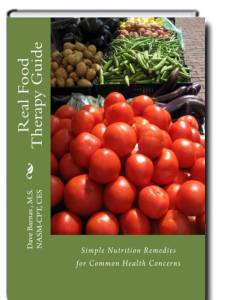If you think money can’t buy happiness, research says you may not be spending it right. Our spending habits can be very productive for happiness!
Here’s three ways happiness can be bought.
Pay Now, Consume Later
Instant gratification is awesome, isn’t it? Get what you want now and pay later. Credit cards encourage this “consume now and pay later” mind-set. It’s great for many things, but if debt gets too big, our happiness suffers.
Let’s try something different – spend in reverse. It’ll make us happier.
From: Happy Money: The Science of Happier Spending
“By putting this powerful principle into reverse – by paying up front and delaying consumption – you can buy more happiness, even as you spend less money. Because delaying consumption allows spenders to reap the pleasures of anticipation without the buzzkill of reality; vacations provide the most happiness BEFORE they occur. And research shows that waiting, even briefly, for something as simple as a Hershey’s Kiss makes it taste better when we get it.”
Keeping it in reverse, I use the “pay now, consume later” option in my studio with clients. Clients often pre-pay for 10-20 sessions upfront. Not only does research show this approach supports happiness, but research also shows getting pre-committed supports persistence, a key to success.
From: Psychological Foundations of Success
Pre-commitment means committing yourself in advance to your desired course of action in such a way that when temptations arise, you will have no choice but to go forward.
(on Inspired Living™ Archive: For the Key to Build Persistence, click here).
By paying upfront for a health program, clients pre-commit to a healthy habit with a plus side of happiness!
How else can we buy happiness?
Buy Experiences, Not Things
Home ownership is part of the American dream. The accomplishment is extremely satisfying. Yet, when it comes to happiness, surprisingly, buying that dream home may not lead to higher levels of happiness as compared to buying experiences.
From: Happy Money: The Science of Happier Spending
Remarkably, there is almost no evidence that buying a home – or a newer, nicer home-increases happiness. Material things (from beautiful homes to fancy pens) turn out to provide less happiness than experiential purchases (like trips, concerts, and special meals.)
Why do experiences like going out to dinner, visiting places and seeing rock stars bring more happiness than things? The feelings of connection with others.
From: Happy Money: The Science of Happier Spending
Research shows that experiences provide more happiness than material goods in part because experiences are more likely to make us feel connected to others.
A connection with others fuels happiness. This is possible in even extreme and seemingly outrageous experiences. One example is a business called the Tough Mudder, a wild outdoor experience featuring running through mud and various obstacles with teammates. It looks crazy, but people love the connection and memories. Over half of the folks who complete one event return for another.
If challenging yourself in the mud isn’t for you, when buying your happiness experiences, consider these guidelines.
From: Happy Money: The Science of Happier Spending
The experience makes a memorable story that you’ll enjoy retelling for years to come.
The experience is tightly linked to your sense of who you are or want to be.
The experience brings you together with other people, fostering a sense of social connection.
Connection with others leads us into our third happiness buying strategy.
Invest In Others
It’s pretty cool when we buy something we like. A new this or that can go a long way to make us feel good. But for a bigger happiness boost, research says spending on others is the golden ticket with a health benefit too!
From: Happy Money: The Science of Happier Spending
New research demonstrates that spending money on others provides a bigger happiness boost than spending money on yourself…Investing in others can make individuals feel healthier and wealthier.
Little deeds go a long way. One “experiment suggests that spending as little as $5 to help some one else can increase your own happiness.” So the next time you’re shopping on Amazon, pick out a little something for some one else. They’ll appreciate it and you’ll get a happiness boost too!
(on Inspired Living™ Archive: For the Simple Question to Ask Yourself for a Happiness Upgrade, click here).
Wrap-Up
Pay Now, Consume Later – Paying upfront for something allows you to enjoy the anticipation of whatever it may be without the buzzkill of having to pay back the debt later.
Buy Experiences, Not Things – Buying experiences (trips, concerts, special meals) fuels happiness, especially when we feel connected with others.
Invest In Others – Spending on others provides a bigger happiness boost than on yourself; just $5 bucks spent on some one else can increase your happiness.






